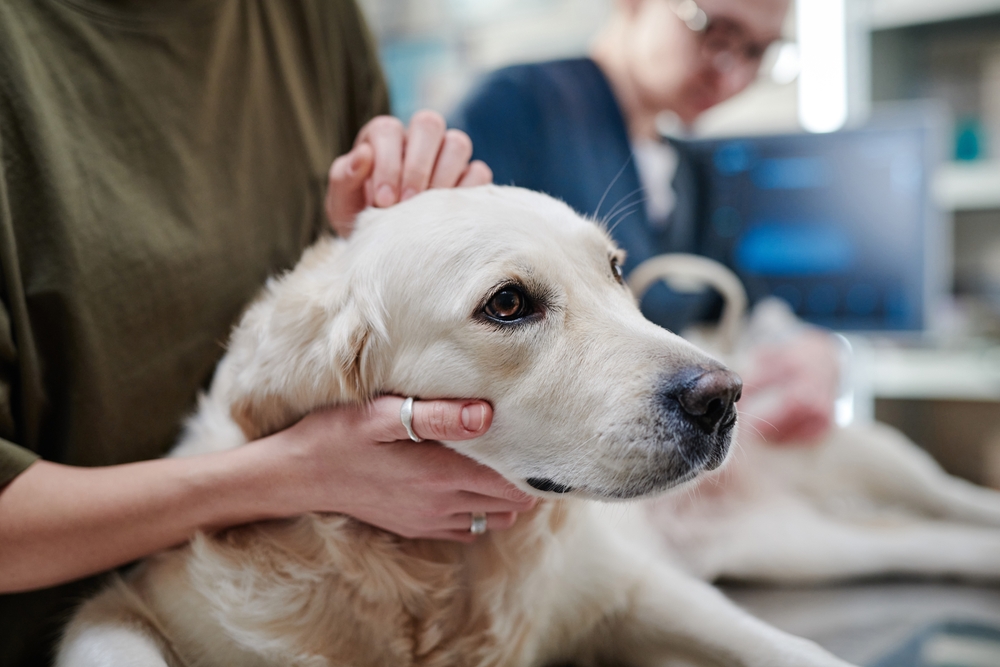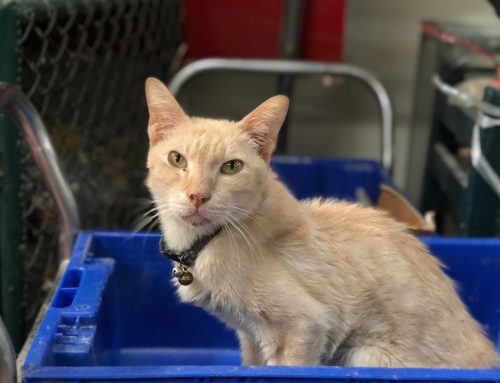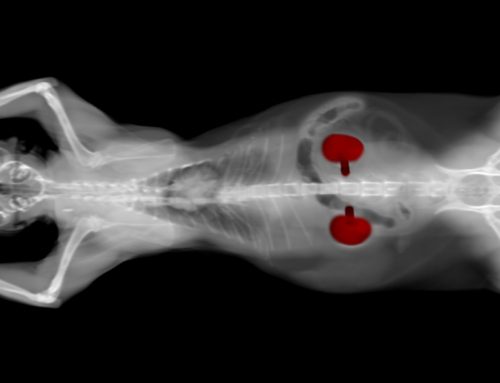Do you know the early warning signs of cancer in pets? Just like in humans, early detection of cancer can make a significant difference in your pet’s treatment and prognosis. At Star of Texas Veterinary Hospital in Austin, Texas, we’re here to help you recognize these critical signs, provide comprehensive care, and guide you through the journey of managing your pet’s health with confidence.
What is Cancer in Pets?
Cancer occurs when cells in your pet’s body grow abnormally and uncontrollably. It can affect any organ or tissue, from the skin to internal organs like the liver or lungs. Some of the most common types of cancer in pets include:
- Lymphoma: Affects the lymph nodes, spleen, and bone marrow.
- Mast Cell Tumors: These commonly form on the skin.
- Osteosarcoma: A type of bone cancer more common in large-breed dogs.
Each type of cancer presents differently, which is why it’s essential to have regular veterinary check-ups and seek professional care when you notice something unusual.
Recognizing Early Symptoms of Cancer in Pets
How can you tell if your pet might have cancer? While not every lump or change in behavior is a sign of cancer, there are certain symptoms you should never ignore. Here are the most common signs of cancer in pets:
- Lumps and Bumps: Not all growths are cancerous, but any new lumps should be examined by a veterinarian.
- Sudden Weight Loss: Rapid weight loss without a change in diet can indicate an underlying issue, including cancer.
- Sores That Don’t Heal: Persistent sores or lesions that don’t improve could be a sign of infection or malignancy.
- Changes in Behavior: If your pet is showing signs of pain, such as reluctance to move, limping, or decreased interest in activities, these could be red flags.
If you notice any of these signs, contact your veterinarian at Star of Texas Veterinary Hospital immediately. Early detection allows for a broader range of treatment options and a better prognosis.
Common Cancer Risk Factors in Pets
Certain factors increase your pet’s risk of developing cancer, and some of these risks are unavoidable. For instance, age plays a role—just like people, older pets are more prone to cancer. Did you know that specific breeds are also more likely to develop certain types of cancer?
- Golden Retrievers: These dogs are at a higher risk for lymphoma and hemangiosarcoma (cancer of the blood vessels).
- Boxers: Known to be more susceptible to mast cell tumors.
- German Shepherds: This breed is more likely to develop bone cancer.
Additionally, environmental factors, such as exposure to cigarette smoke or harmful chemicals, can increase cancer risks. Keeping your pet’s environment as safe and healthy as possible is a vital part of cancer prevention.
Diagnostic Tools for Cancer Detection
How is cancer diagnosed in pets? At Star of Texas Veterinary Hospital, we use advanced diagnostic tools to detect cancer early and accurately. These include:
- Biopsies: A small sample of tissue is taken from a lump or suspicious area to determine whether the cells are cancerous.
- X-rays and Ultrasound: These imaging tools help us see inside your pet’s body to detect abnormalities in organs, bones, or other tissues.
- Blood Tests: Certain types of cancer can cause changes in your pet’s bloodwork, which can help point us in the right direction.
Our veterinarians also offer Fear-Free Care to ensure your pet is as comfortable as possible during diagnostic procedures.
Treatment Options and Support for Pet Cancer
Once cancer is diagnosed, treatment depends on the type and stage of cancer, as well as your pet’s overall health. Common cancer treatments include:
- Surgery: Often used to remove localized tumors.
- Chemotherapy: A treatment that uses drugs to target and kill cancer cells. It’s important to note that pets generally tolerate chemotherapy much better than humans do, with fewer side effects.
- Radiation Therapy: This may be recommended for certain types of tumors or when surgery is not an option.
Our team will guide you through all available options and recommend the best course of action for your pet. We also focus on your pet’s quality of life, offering Pain Management to help them feel as comfortable as possible.
How to Support Your Pet After Cancer Treatment
What happens after treatment? Recovery and aftercare are just as important as the treatment itself. Pets recovering from cancer may require special diets, pain management, or mobility support. At Star of Texas Veterinary Hospital, we provide individualized care plans for post-treatment recovery, ensuring that your pet’s needs are met every step of the way.
We encourage you to Request an Appointment for a consultation if you suspect your pet may have cancer or if your pet needs a follow-up after completing treatment.
Cancer Prevention: Can It Be Done?
While not all cancers can be prevented, taking steps to promote overall health can reduce the risk. These include:
- Regular Veterinary Exams: Early detection is key to improving treatment outcomes. Routine check-ups allow us to catch problems before they become severe.
- Healthy Diet and Exercise: A balanced diet and regular physical activity can improve your pet’s overall health and reduce cancer risks.
- Avoid Harmful Chemicals: Keep your pet away from smoke, pesticides, and other toxins.
How Star of Texas Veterinary Hospital Can Help
At Star of Texas Veterinary Hospital, we’re here to support you every step of the way. From early detection and diagnosis to treatment and recovery, our experienced team offers compassionate care tailored to your pet’s unique needs. We also provide personalized follow-up plans to ensure your pet has the best possible quality of life.
Visit our Services Page to explore our full range of offerings, or Contact Us for more information on how we can assist with your pet’s health.
Cancer can be a frightening diagnosis, but with early detection and proper care, many pets go on to live happy and fulfilling lives. Stay vigilant, keep up with regular veterinary visits, and contact us if you notice anything unusual. Star of Texas Veterinary Hospital is here to help you navigate this journey with your pet.







